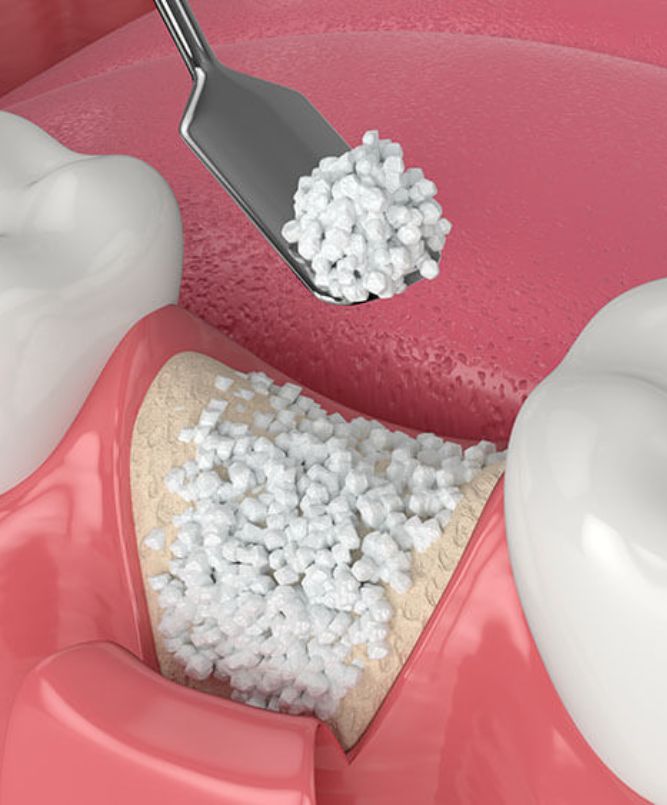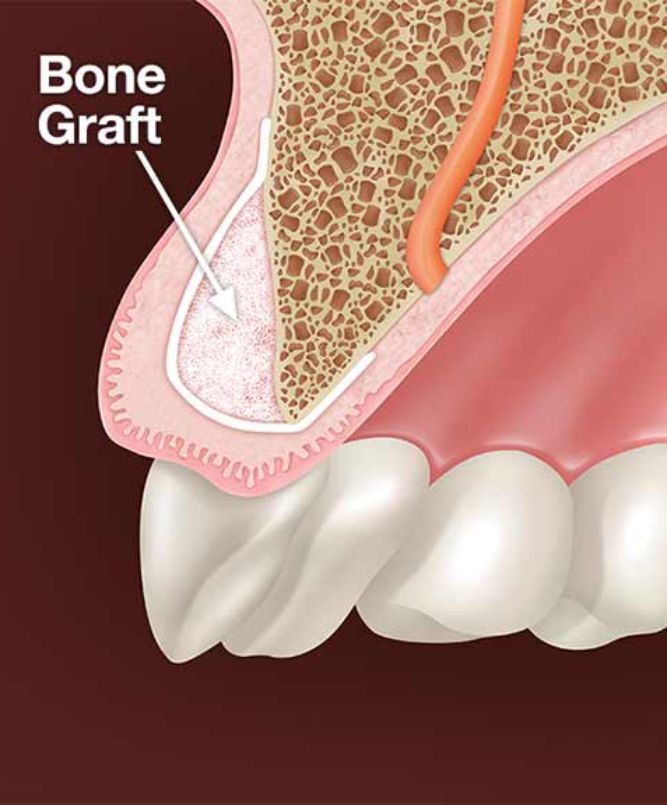Dental implants are replacements designed to mimic the function of natural tooth roots. They are securely implanted into your jawbone to anchor various dental prosthetics including:
✓ Dentures
✓ Crowns
✓ Dental bridges
Implants are typically recommended for individuals who may not have adequate teeth or gum structures to support dentures or bridges.
When to Use Bone Grafting?
In cases where there is no sufficient bone to support an implant, a bone graft may be necessary. There are different surgical techniques that allow us to grow bone both vertically and horizontally. Depending on case, bone grafting may be done either the same time with implant placement or a few months before the implants. We will be able to give you more information during the examination and consultation.
Bone Grafting We Perform:
There are different types of bone graft materials. In some cases it can be taken from patients own jaw or other parts of body, which is called an autograft. Depending on case, we may use bone grafts of different origins(from bovine, human cadaver, etc.) or fully synthetic options.
We do Minor bone grafting: This procedures usually involve xenografts or synthetic bone graft materials. They are done under a local anesthesia, which numbs the area without a need for sleep. Patients can usually go home immediately after the procedure.


How to Get Ready for Bone Grafting Procedure?
It’s important to disclose any health issues or medications during your consultation. If you smoke, quitting is highly advised as smoking can decrease oxygen supply to tissues, hindering the healing process and increasing the risk of complications with dental implants.
Risks Associated with Bone Grafting:
Bone grafting can have side effects such as pain, swelling, and bruising at the graft site.
Infection is a possible risk, though preventative antibiotics are typically administered post-procedure.
In some instances, the grafted bone may not integrate sufficiently to proceed with implant surgery, necessitating additional grafting procedures. The risk of graft failure is higher in smokers. Your dental team will discuss all potential risks and assess your specific likelihood of successful treatment.

